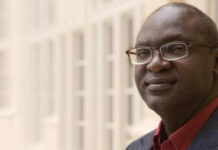John Maynard Keynes with his understanding of history and mathematics combined with his capability to contemplate the particular, in terms of the general, and touch abstract and concrete in the same flight of thought and his ability to study the present in the light of the past for the purposes of the future warned about the consequences of punishing millions of Germans.
By Anthony Kila
Our unforgettable today is John Maynard Keynes. He was an economist, essayist, financier, conscious objector, consultant, civil servant, teacher, public affairs analyst and statesman. I have argued elsewhere (in my “Trilogy of Economics”) that the three most important economists of all times are John Maynard Keynes, Adam Smith and Karl Marx.
In his musings over what the study of economics entails and who is an economist, John Maynard Keynes, in an essay written in 1924, as a tribute to Alfred Marshall, another icon that made it into our pantheon of “The Unforgettables”, noted that “The master-economist must possess a rare combination of gifts. He must be mathematician, historian, statesman, philosopher—in some degree. He must understand symbols and speak in words. He must contemplate the particular, in terms of the general, and touch abstract and concrete in the same flight of thought. He must study the present in the light of the past for the purposes of the future. No part of man’s nature or his institutions must be entirely outside his regard. He must be purposeful and disinterested in a simultaneous mood, as aloof and incorruptible as an artist, yet sometimes as near to earth as a politician.”
Contemporaries took that definition to mean a description of Alfred Marshall. It is very easy to understand why: Alfred Marshall was not just a great economist, he was also an academic patron, teacher and even a tutor, mentor and great influence to John Maynard Keynes. Maybe Keynes was even consciously talking about Marshall in 1924, decades later however, it has become readily clear to those who care that the description of the “Master of Economics” was clearly more of Keynes than Marshall.
A very Cambridge man, John Maynard Keynes was born in Cambridge in 1883. His father Neville Keynes was an economist and an administrator and lecturer at Cambridge, his mother, Florence Keynes, (née Brown) was a writer, historian, politician and one of the first female graduates of Cambridge. Yes, it is safe to say that John Maynard Keynes was born into and grew up in a family of scholars.
John Maynard Keynes started with an original interest in classic studies and mathematics. At Cambridge, his interest and passion moved from mathematics and classic studies to politics and economics. He was begged to become an economist. These must be said: During his “days” at Cambridge, John Maynard Keynes bagged a first class in Mathematics, became president of the Cambridge Union Society, and also president of the Cambridge University Liberal Club. After his studies at Cambridge, Keynes went on to work for government as a civil servant at Whitehall. He worked at the Indian Desk from 1906 to 1909 when he resigned out of boredom. His years at that desk however laid the foundation for his first major academic work “Indian Currency and Finance” published in 1913. In that work, Keynes explored and articulated the Indian currency and finance in pre-world war I era. He returned to Cambridge to teach and start his research on “Probability Theory”.
At the wake of the first world war, the British Government invited John Maynard Keynes to advise in government policies. He was a consultant to the British Government as we would say today. Many then were calling for the suspension of the convertibility of banknotes into gold – suspension of the specie payment it was called then. Keynes convinced the chancery headed by Lloyd George that such would be a bad idea. To put this in context, just imagine an economist capable of convincing the world not to suspend Swift with Russia today.
His position was converted into that of a senior government official of the treasury at the beginning of 1915. He had by then created a reputation for steady nerves and adeptness of financial and economic affairs. He was charged amongst other things to design methods for acquiring scarce currency and to come up with credit terms between Britain and its allies. Keynes was bold and superlative in his role, not only was he able to amass enough scarce currency for the government, he also had the audacity and foresight to go to the market rather than hand over to government what he stockpiled. His daring position paid off and by injecting so much scarce foreign currency into the market, the foreign currency became readily available and its value went down.
READ ALSO: Karl Marx: The philosopher king
Jean-Baptiste Say: The evangelist of production
Emotions were understandably high by the end of the first world war and the general mood was to punish Germany for causing so much loss of lives and damages to properties and monuments: many were pushing for sanctions and punishment. John Maynard Keynes with his understanding of history and mathematics combined with his capability to contemplate the particular, in terms of the general, and touch abstract and concrete in the same flight of thought and his ability to study the present in the light of the past for the purposes of the future warned about the consequences of punishing millions of Germans. His recommendations were not adopted and Germany was sent to a naughty corner.
John Maynard Keynes resigned his position in government and cautioned all that “Men will not always die quietly”. His caution came in a book published in 1919, titled “The Economic Consequence of the Peace”. His position was later celebrated as a prophecy or prediction of the rise of the 3rd Reich and the second world war. In that same book, Keynes made it known that he “cannot leave this subject as though its just treatment wholly depended either on our own pledges or economic facts. The policy of reducing Germany to servitude for a generation, of degrading the lives of millions of human beings, and of depriving a whole nation of happiness should be abhorrent and detestable, – abhorrent and detestable, even if it were possible, even if it enriched ourselves, even if it did not sow the decay of the whole civilized life of Europe. Some preach it in the name of Justice. In the great events of man’s history, in the unwinding of the complex fates of nations Justice is not so simple. And if it were, nations are not authorized, by religion or by natural morals, to visit on the children of their enemies the misdoings of parents or rulers.”
Informative as all these are, we are yet to go into what made Keynes a household name but with what is going on in the world today and conversations being held about the Russia and Ukraine, it is worth remembering and rediscovering the John Maynard Keynes of pre-world war one.
Join me if you can @anthonykila to continue these conversations.
Prof Anthony Kila is Centre Director at CIAPS Lagos.














